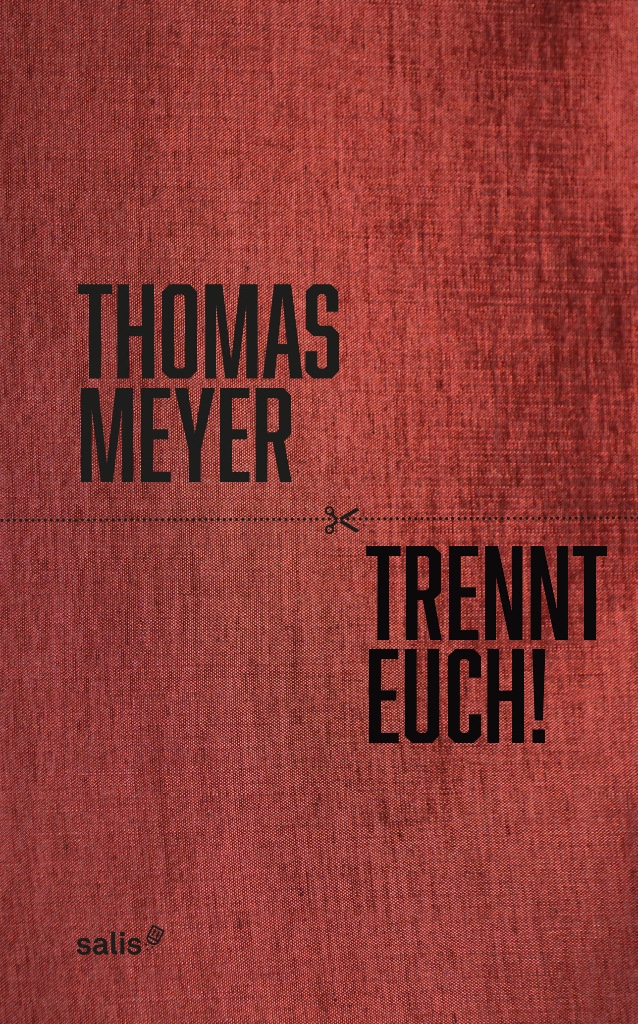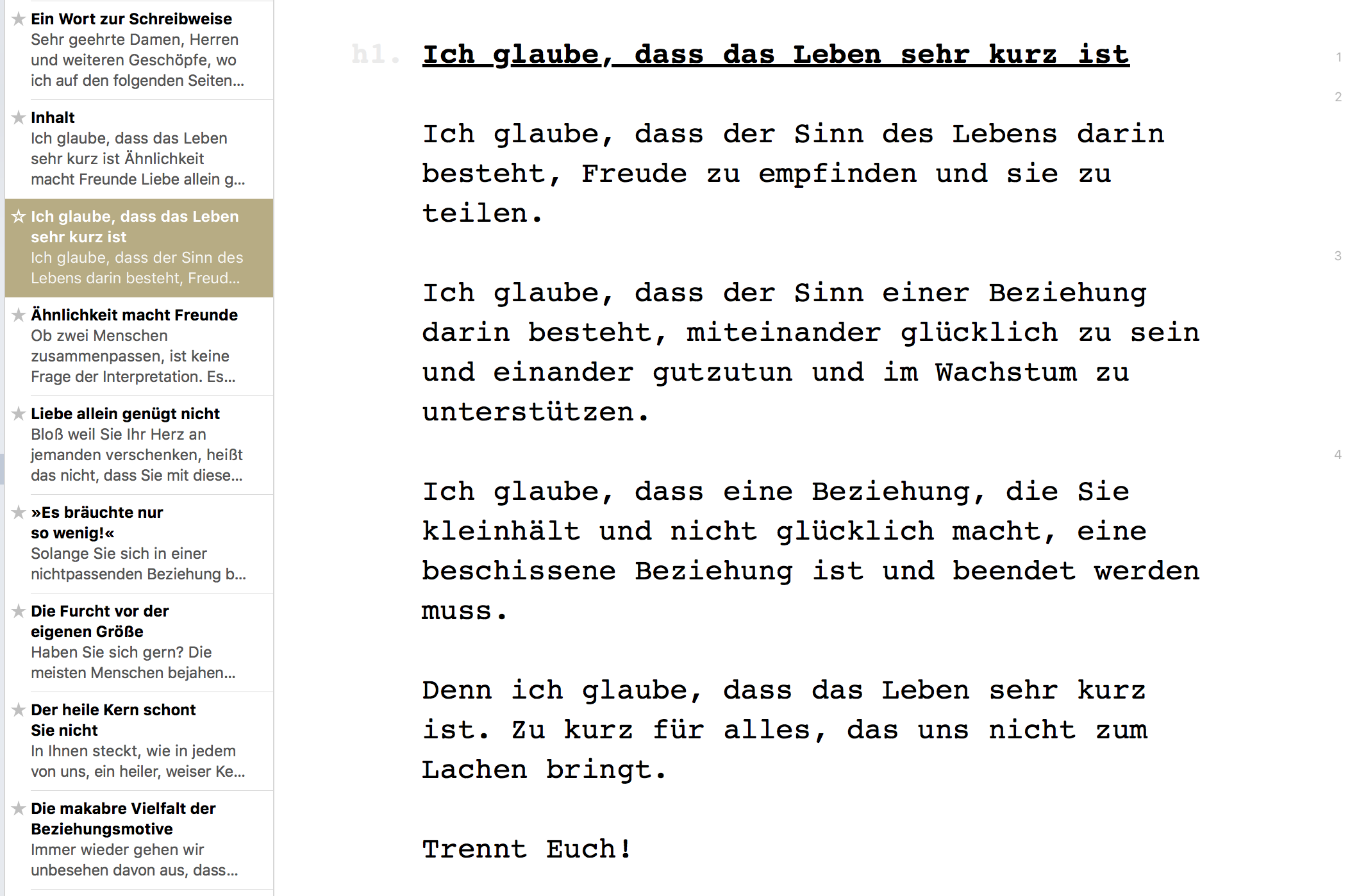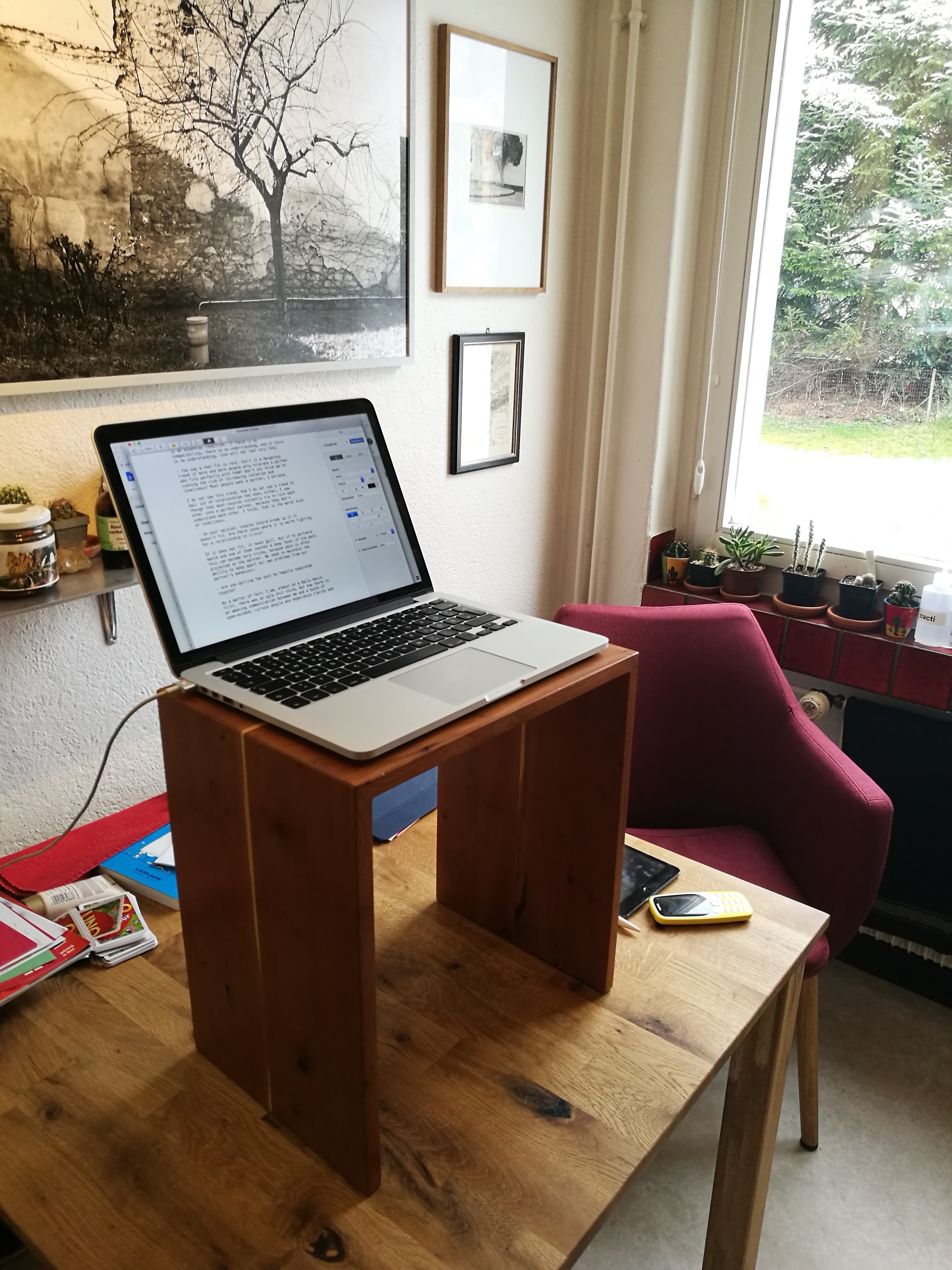The Swiss writer Thomas Meyer used to earn his living with advertising copy before he started publishing books and essays. His debut novel, published in 2012, was a bestseller in his home country; it was also turned into a movie and will hit the theaters in October 2018. Meyer’s latest book is entitled Trennt euch! (“Break up!”); it is a treatise for unhappy couples aiming to help them break up. We asked Meyer a couple of questions about the book and the writing life.
Do you believe in the one great love?
I don’t believe in the singularity of great love. But I also don’t believe that a great love equals a great relationship.
Your book aims to encourage couples to end their relationships. Why did you write it?
It encourages only unhappy couples to break up. I wrote it because I think most couples are unhappy and because I wanted to show them a way to end their suffering. And to understand the reasons why they entered an unhappy relationship.
You say that, in addition to love, there is another necessary condition for a functional relationship: Partners should fit together.
Love is actually quite accidental. But each time we fall in love with someone, we tend to translate these feelings into a perfect match. In order to achieve a good relationship, partners also need to have a similar mindset and similar expectations. Compatibility is an essential condition. If there is no compatibility, there is no understanding, and if there is no understanding, love will not last very long.

Is separation the only solution if couples don’t fit?
No. Sometimes it is also possible to reach a new understanding of the relationship’s mechanism. If you realize that your expectations were egotistical and immature, and if you manage to alter them, you become a more fitting partner.
How did people react to your book? Are you getting fan post by happily separated couples?
As a matter of fact, I am. First, there was a little shit storm, but now there is an amazing communication between me and a bunch of open-minded, curious people who experience clarity and thankfulness after reading the book. A woman even told me it saved her life. I told her she did that herself, but she insists.
You also offer counseling for couples who want to break up. How did you come up with the idea?
I went through this process quite a few times myself and I think I know the difficulties that lay therein. People easily know what is wrong with their partner, but the reasons they picked them, often are a mystery.
How did you become an author?
I taught myself how to read and write. I think, this had laid out my path in a fateful manner. But I probably was already wandering on it back then.
You have been working as a writer for advertising agencies before. How do both professions compare?
Writing is much more fun, believe me. Also, I always hated meetings.

Where do the ideas for your stories and essays come from?
They are around me, everywhere, all day long. It starts before I wake up and ends after I fall asleep. At times, it is really exhausting.
What, do you think, is most important for an author: talent, craft, or diligence?
All of them are important, but you will not write a book if you are not ready to put everything into it. So diligence is the answer.
Please tell us something about the way you work. Which apps and tools do you use?
I use Ulysses, because of its simplicity and the platform compatibility. I use it on my laptop and my iPad. I have a classic notebook, of course, but I rarely use it. I prefer entering ideas into my iPad.

Could you please describe the way you’re using Ulysses, your typical workflow?
For each idea, I open a new sheet. Like a sketch paper. Maybe it turns into a real chapter, maybe I use only a line, maybe I delete it. This happens parallel to the actual workflow where I build chapters. But they start with keywords or single phrases.
What do you like best about Ulysses? Do you have a favorite feature?
I like the simplicity. I can enter the width of the column, which is important for me, because I like them narrow, and start writing while having the possibility to move sheets around on a meta level. And I like the Ulysses style. The design. The newsletters. The funny tutorial.
That’s great! Thanks for the interview.
For further information about his work, visit Thomas Meyer’s website. There you’ll also find his contact information in case you would like to ask for his advice about your relationship – he’ll reply in English, too! The ultimate Spotify soundtrack for breaking up can be found here.
